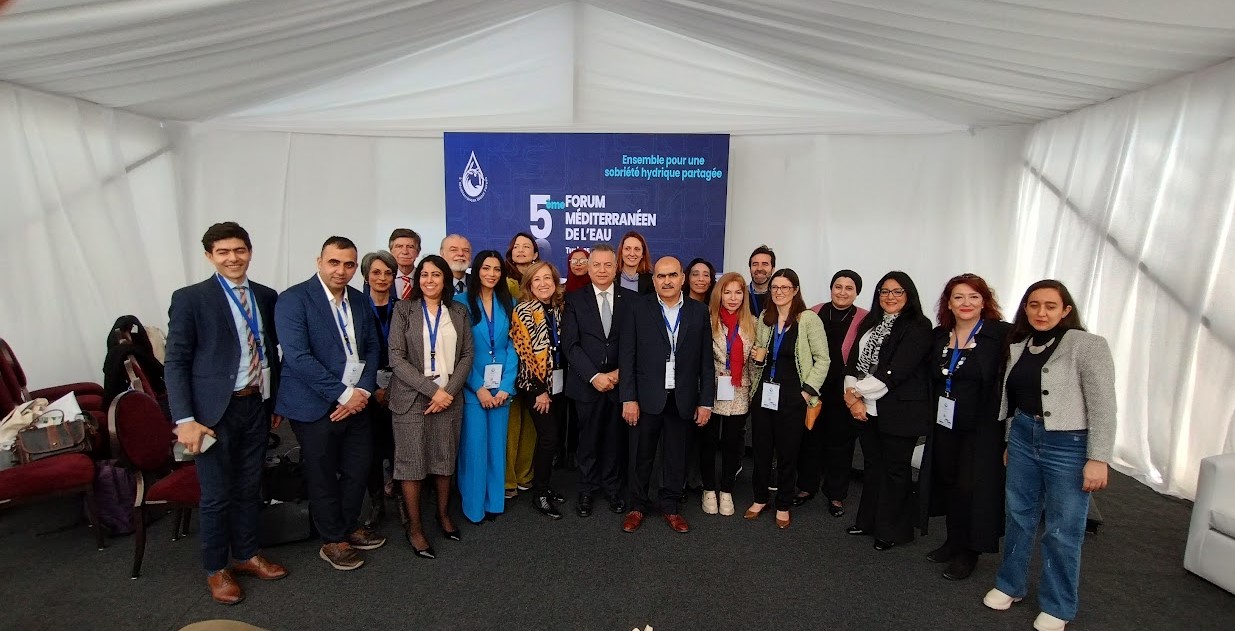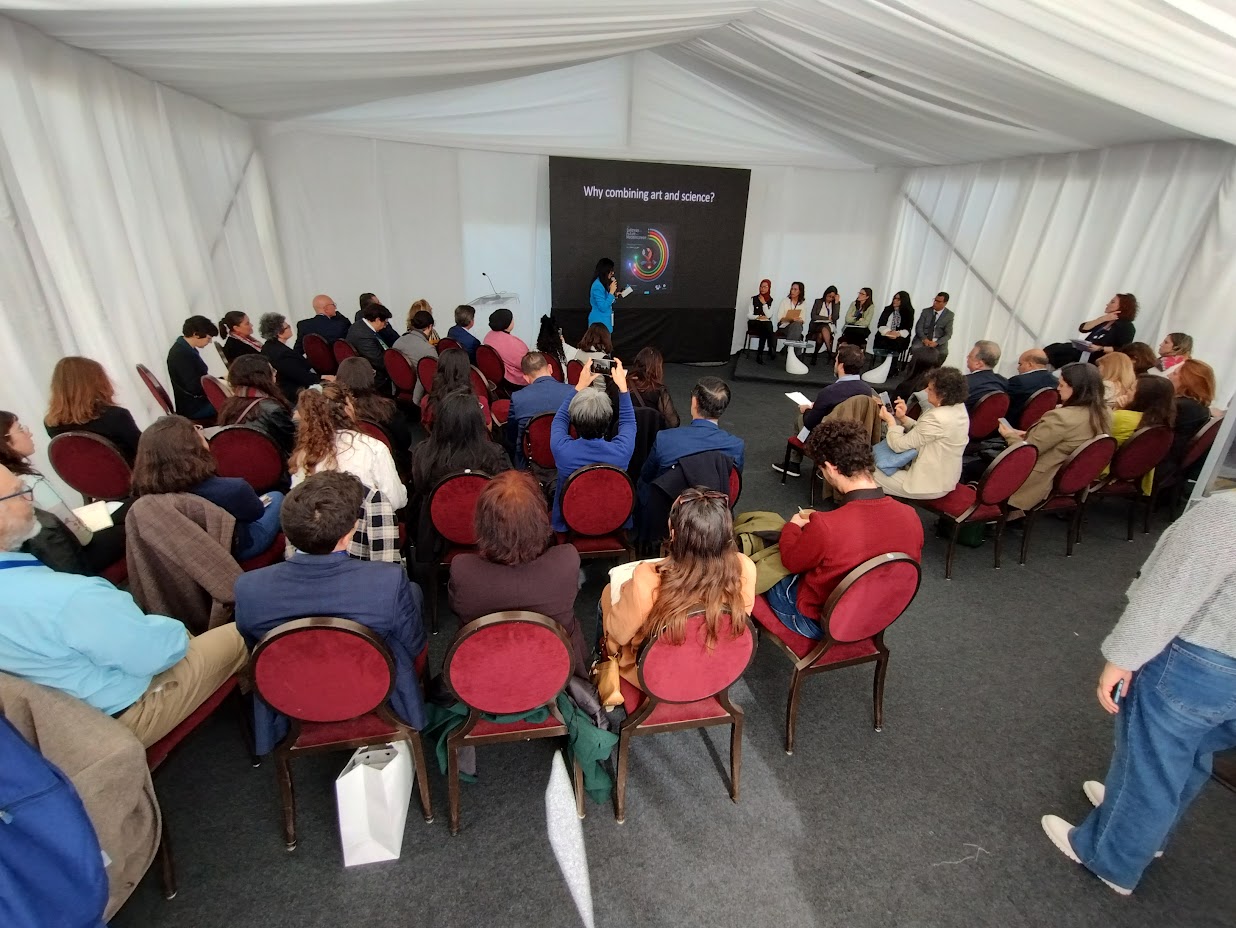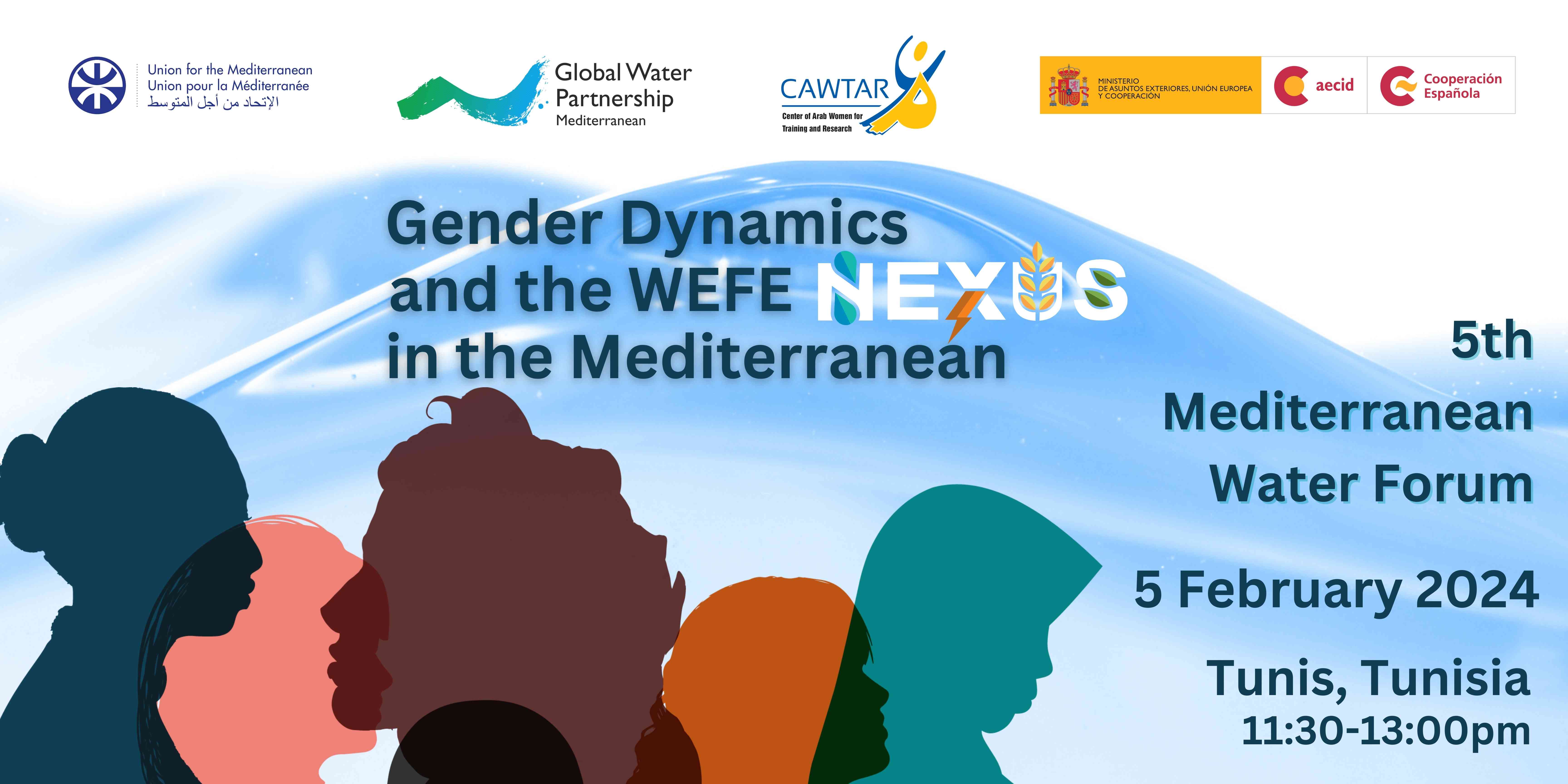The interplay of Gender with the Water-Energy-Food-Ecosystems (WEFE) Nexus framework was the focus of the side event Gender Dynamics and the WEFE Nexus in the Mediterranean held within the framework of the 5th Mediterranean Water Forum, on Monday, 5th February 2024, between 11:30-13:00, and co-organised by the Union for the Mediterranean (UfM) Secretariat, the Spanish Agency for International Development Cooperation (AECID), the Global Water Partnership – Mediterranean (GWP-Med) and the Center of Arab Women for Training and Research (CAWTAR).
This interactive session discussed with more than 65 stakeholders the challenges and opportunities for ‘gendering’ the WEFE Nexus framework. Through panel interventions and exchanges with the participants, it was possible to enhance the understanding of the role of women in the WEFE Nexus and to advocate for a gender-transformative approach in the formulation of policies and decision-making processes at various levels.

Participants highlighted that gender mainstreaming and transformation of gender norms are key for the paradigm shift and eventually a cultural change in the Mediterranean region.
More specifically, the participants acknowledged that sustainable development and gender equality are intricately linked. Despite this recognition, the discourse on sustainable development often overlooks the issue of equal access to natural resources, especially for marginalised groups like rural women.
The interconnection of energy, water, and food is undeniable. However, the management of water and the broader water-food-energy-ecosystems nexus predominantly remains a male-dominated domain. To shift this paradigm, gender mainstreaming stands out as the primary tool for attaining gender equality and redistributing power and influence.
Moving beyond and eradicating gender stereotypes and biases, a transformation of gender norms is needed a paradigm shift and eventually a cultural change in the Mediterranean region. It is important to move up the gender ladder, and finally adopt gender-transformative approaches.

Stakeholders agreed to 7 recommendations in order to "gender" the WEFE Nexus.
Following the interventions from the panellists and the discussion with the participants, the following recommendations -in random order- were suggested to ‘gender’ the WEFE Nexus:
- Sex-disaggregated data: A thorough understanding of gender issues at various levels requires gender-disaggregated data. Only with this type of data can policy makers be aware of the existing situation and can design gender-sensitive policies and strategies. In addition, gender-specific datasets linked to WEFE Nexus are important to understand what differences arise from gender-specific productive roles, different perspectives of resources, access, and decision-making mechanisms with respect to resource management and use. There is a need for institutions and statistical systems to provide gender-disaggregated data and accurate/reliable information.
- Governance reforms using the gender transformative approach for integrated WEFE planning and policies: Institutional and legislative reforms remain a priority in most Mediterranean countries. An inclusive and participatory process, with the involvement also of civil society, research institutes, and the private sector, is essential for sustainable policy development, planning and for creating an integrated vision that considers the expectations of both women and men.
- Capacitation: This concerns on the one hand targeted capacity building and training programmes/courses/session, and on the other, hands-on training to enhance the skills and competences of women in areas such as leadership, entrepreneurship, and project management within the WEFE Nexus. Furthermore, capturing and imparting the essence of traditional know-how, with emphasis on nature-based solutions/frugal innovations, needs to be also part of the capacitation.
- Empowering women to take up leadership positions: besides the capacitation, invest on scientific diplomacy and other innovative mechanisms to gender institutional policies at different levels, including the Union for the Mediterranean Water Agenda and Financing Strategy.
- Gender-focused financing: gender-focused financing and gender budgeting within projects are largely missing and need to become a priority. Creating a sustainable mechanism for accessing financial resources of different types is necessary for true economic empowerment.
- Women entrepreneurships: Assist women entrepreneurs in accessing new markets and exploring international opportunities. Provide resources and support for exporting products or services regionally/globally. Implementing frugal financial models, such as microfinancing and community savings groups, can empower women entrepreneurs in the WEFE Nexus. This enables them to access capital for implementing innovative solutions, fostering entrepreneurship and self-sufficiency.
- Frugal WEFE Nexus innovation: Promote community-driven frugal innovations that empower rural women in sustainable water, energy, and food management practices within the WEFE Nexus.
The recommendations from the dedicated gender session, besides communicated to the plenary sessions of the 5th Mediterranean Water Forum, were also transmitted to the organisers of the 5th Mediterranean Water Forum for subsequent action in view of the 10th World Water Forum (May 18-25, 2024, in Bali, Indonesia).
